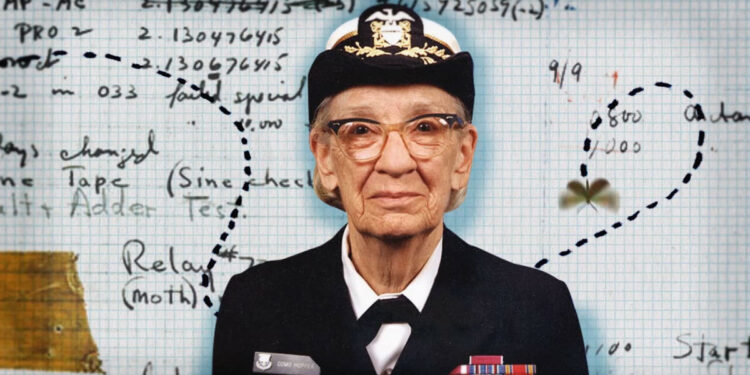Grace Hopper, a trailblazing figure in the world of computer science, made an indelible mark on the industry and forever changed the course of technology. Born in New York City in 1906, she was a woman ahead of her time, breaking gender barriers and leaving an enduring legacy.
Hopper’s fascination with mathematics and technology began at an early age. She earned her Ph.D. in mathematics from Yale University in 1934, an achievement that was rare for women during that era. During World War II, she joined the U.S. Navy and was assigned to the Bureau of Ordnance Computation Project at Harvard University. Here, she worked on the Mark I computer, one of the earliest programmable digital computers.
Post-war, Hopper continued to make significant contributions to the burgeoning field of computer science. She played a vital role in the development of the UNIVAC I, the first commercial computer produced in the United States. It was during her time working on the UNIVAC project that she coined the term “debugging” after discovering a moth trapped in a relay, thereby giving birth to the now-common term used for fixing software issues.
Hopper’s most enduring contribution was her work on the development of COBOL (Common Business-Oriented Language) in the late 1950s. COBOL was one of the first high-level programming languages, making it easier for people to write and understand computer programs. This revolutionized software development and enabled programmers to focus more on problem-solving and less on machine-specific details.
Throughout her career, Hopper advocated for the use of English-like programming languages, making computing more accessible to a broader audience. She believed that programming should be as simple as possible, empowering individuals from various disciplines to leverage the power of computers.
Hopper’s contributions and accomplishments did not go unnoticed. She received numerous accolades, including the prestigious Presidential Medal of Freedom, making her the first female recipient of this honor in the field of computer science. Hopper’s tenacity, visionary thinking, and dedication to her work have inspired countless generations of computer scientists, especially women, to pursue careers in technology.
In conclusion, Grace Hopper’s impact on the world of computer science is immeasurable. Her pioneering spirit and dedication to simplifying programming languages laid the groundwork for the modern software development landscape. As the tech industry continues to evolve, her legacy serves as a reminder that with determination and innovation, one person can change the world. Grace Hopper’s legacy will forever shine as a beacon of inspiration for future generations of computer scientists, proving that the pursuit of knowledge and passion can truly transform the world.
newshub




Recent Comments